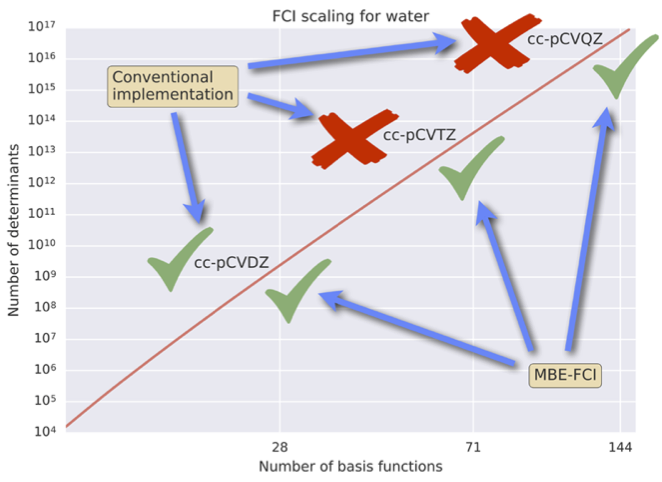Speaker: Jürgen Gauss
Title: Many-Body Expanded Full Configuration Interaction
Abstract: Full configuration interaction (FCI) provides the exact solution for the electron-correlation problem within a given one-particle basis set. However, the FCI approach suffers from an exponential scaling of the computational cost with system size and so far could only be applied in benchmark calculations on small systems using rather modest basis sets. Over the last few years, there has been a renewed interest in extending the applicability range of FCI by overcoming the exponential scaling wall by means of “numerically approximate” solutions with remaining errors of 10-3 to 10-5 Hartree. In this context, one should mention the density-matrix renormalization group (DMRG) approach (e.g., White, Hess, Legeza, Chan, Reiher), stochastic FCI (Alavi, Booth), as well as various versions of selected or incremental (F)CI schemes (e.g., Malrieu, Neese, Umrigar, Sharma, Evangelista, Whaley, Zimmerman). In a recent letter [1], we suggested to overcome the exponential scaling wall of FCI via a many-body expansion of the correlation energy with respect to the virtual orbitals considered in the correlation treatment. We demonstrate in this lecture that our many-body expanded FCI (MBE-FCI) scheme enables large-scale FCI-level treatments (see, e.g., Figure 1) by means of a properly chosen screening protocol, that MBE-FCI is inherently massively parallel, and that the adequate definition of a reference active space in MBE-FCI furthermore allows the treatment of strongly correlated systems.

[1] J.J. Eriksen, F. Lipparini, J. Gauss, J. Phys. Chem. Lett. 8 (2017) 4633.
